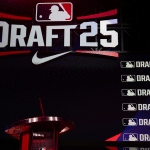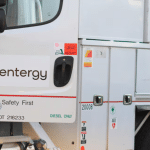With fentanyl being a driving factor in overdoses resulting in fatalities, the Mississippi Bureau of Narcotics (MBN) is looking to crack down on the distribution of fentanyl while simultaneously limiting overdose-related deaths.
In a recent interview on The Gallo Show, Colonel Steven Maxwell noted that he and the department are well aware of the epidemic of fentanyl-laced drugs being distributed en masse. However, Maxwell encouraged Mississippians that law enforcement has been able to curtail overdose fatalities in part because Parker’s Law, the Victoria Huggins Pill Press Law, and Good Samaritan Law were passed by the state legislature.
“In the past two years, we’ve had more than 1,000 Mississippians die as a result of drug-related overdoses. From January to July of this year, we’ve had more than 7,000 non-fatal drug-related overdoses,” Maxwell said. “Now, the encouraging thing about that is that they were non-fatal.”
According to Maxwell, the MBN is working with other law enforcement agencies within the state to locate hotbeds for drug trafficking. Maxwell acknowledged that these substances are not native to the Magnolia State.
“The amount of seizures that we make, the amount of seizures that we see, local law enforcement agencies are making on our interstates and our highways — that gives us an indication of what we’re potentially missing,” Maxwell said. “The coca plant is not cultivated here in Mississippi. The poppy plant is not cultivated here in Mississippi and you cannot import these precursory chemicals to manufacture synthetic opioids not only in the United States, but also here in Mississippi. All this is done just south of our border by Mexican drug cartels.”
As a way to lower the potential ability for a minor to pass away from an overdose, Maxwell is urging parents to monitor what their kids have in their possession. With cartels and other illegal drug manufacturers advancing both technologically and logistically in making drugs appear to be everyday medications, Maxwell wants parents to on the alert for harmful substances that may look innocent to the naked eye.
“The first thing that parents should do is if there is anything that looks like or resembles a medication in their child’s room, backpack, purse, or car, and they don’t have a prescription for that, that’s a red flag,” Maxwell said. “These drug cartels have gotten so good at manufacturing these pills, to some professional pharmacologists, you just cannot tell the difference. When you see something that raises a concern, parents should act on it immediately.”
The full interview with Maxwell can be watched below.








